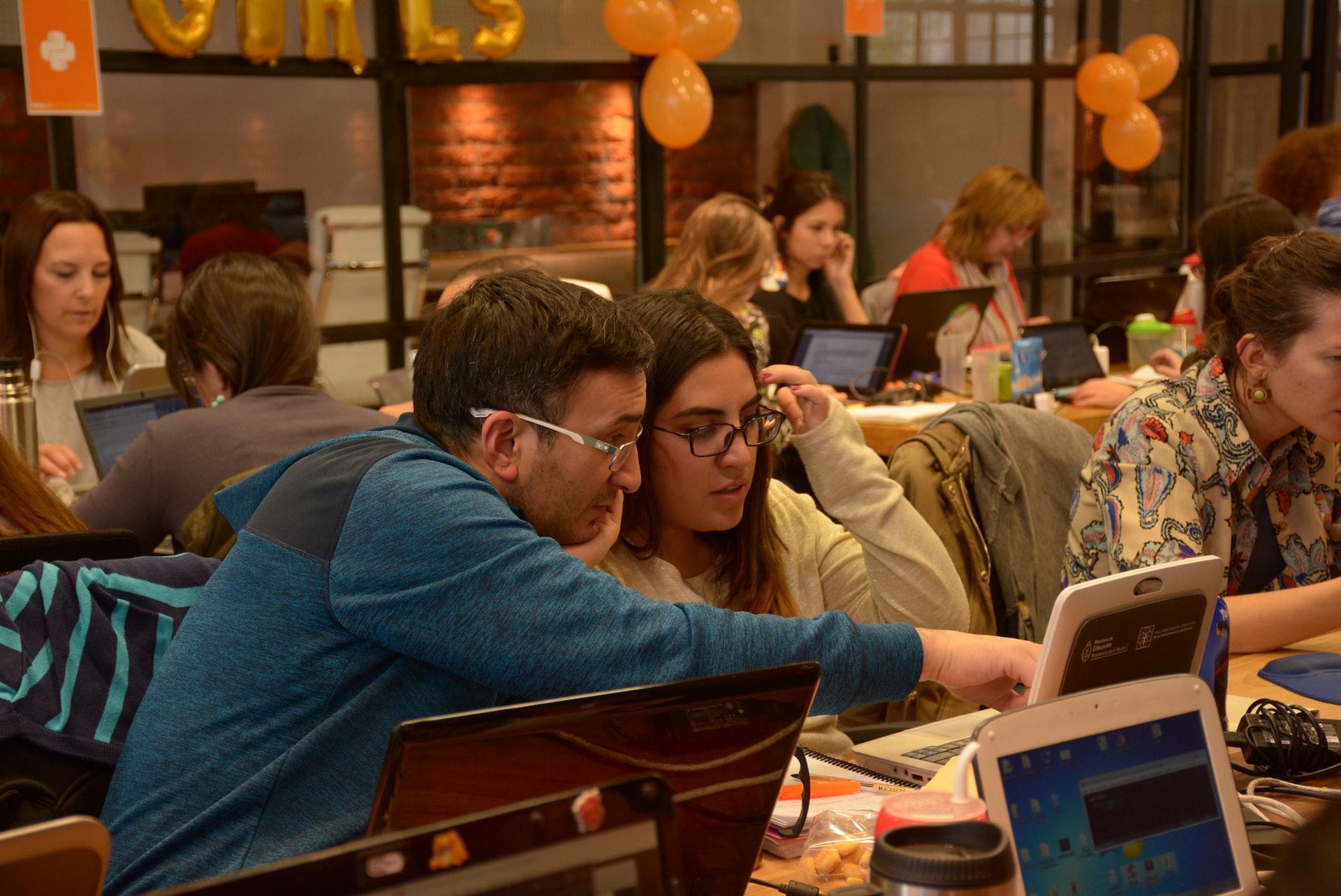Today's world gives us two inescapable facts. The first is that computers are everywhere. More importantly, computers drive everything from flight decks on aeroplanes to this article you're currently reading. The second is that few jobs are as secure as any career field that has to do with technology.
Obviously, computer programming provides the most democratic access to technology jobs. Anyone can learn a programming language, write an algorithm and maintain a source code. Or, for that matter, a machine code. After all, how intimidating can a bunch of ones and zeros be?
But you don't have to worry about learning binary - machine code to get started as a software developer. In fact, you can create a popular game in just a smidge of time. Let's find out what the most in-demand programming languages are.

Mastering Basic Coding Languages
Learning coding languages is just like being a beginner any other language. First, you have to gain exposure to get a sense of it. And then, you can start parsing out the vocabulary and syntax. In programming languages as in spoken tongues, syntax is how the smallest units of a language group form meaning.
Any web page you've ever seen has given you exposure to three coding languages. They are Hyper Text Markup Language (HTML), Cascading Style Sheets (CSS) and JavaScript. HTML is a text encoding system for documents to be displayed in a web browser. CSS describes how a document is presented and JavaScript dictates the page's behaviour. For instance, any pull-down menu is a JavaScript program.

These three form the anchors underpinning the Worldwide Web. Web designers, people who create and build web pages are 'fluent' in these top three coding languages. You might have no interest in web design but it's still a good idea to learn about HTML, CSS and JavaScript. For one, you'll better understand how web pages work.
But the second reason is far more important. These three cornerstones will introduce you to coding syntax: the proper use of curly brackets, how to use tags effectively and how to debug a program. Though not as elaborate as C language coding, HTML nevertheless demands correct syntax. And the best part is that you can write simple pages to test your level as you progress through your learning. You won't need any advanced equipment or even a high-end computer system to start coding in HTML.
Along with these three languages, you should get familiar with the Worldwide Web Consortium (W3C) page. There, you'll find a trove of information as well as a fully stocked toolbox to help you get started coding. For instance, if the page you're writing isn't behaving the way you want it to, you can debug lines of code with the W3C debugging tool. Their cheat sheet is super helpful, too. The popularity of W3C and its resources has only grown over time.
Coding Languages for Various Career Paths
HTML and CSS are relatively easy for a beginner to learn. Starting with them will reduce the intimidation level many beginner coders feel when faced with their first coding challenges. And besides, you can see how quickly you progress as you master these skills every time you load your HTML document.
Next, you need to think about which direction you want to take your coding career. If indeed, you can see your future as a freelance web designer, those cornerstone languages might be all you need to learn. However, HTML has a way of becoming a gateway language. The more beginner developers learn about writing code, the more they want to learn. Go ahead! Nothing's stopping you.
You might reach for Python, the go-to language for beginner coders everywhere. It is easy to understand and learn, and has many applications. For instance, if you wanted to work on an Artificial Intelligence (AI) development team, Python would serve you very well. This programming language is finding uses all over, from data analysis ad scientific research to robotics and web development.
But Python isn't well-adapted to a mobile environment. If you wanted to design and build games or Android applications, Java is the language for you. It too is easy to learn, though not quite as easy as Python (or HTML). Still, as a favourite with developers, Java has a lot of resources beginner programmers can access. And it's widely used so if you can code in Java, you're sure to find a steady job.
Note that Java and JavaScript are completely different languages with totally separate functions. JavaScript is a 'frontend' language; one whose actions the users see. Java is more of a language software developers use to create web applications, along with the C programming language. If you want to create popular games, program robots or do systems-level programming, you need to learn C and/or C++.
These languages enjoy high popularity so you'll have plenty of libraries and materials to work with. They're super fast and super portable, and the programs are efficient. Unfortunately, their syntax is rather elaborate but that shouldn't deter any beginners. Like the SQL programming language, coders in all three of these languages are in high demand.

Coding Languages by Type of Programming
The trouble with defining coding languages and the career paths they open is that new languages are being written all the time. Or legacy languages are modified to meet the demand of today's programmers. That means that maybe a language won't land you a job right now but it could, eventually. That's why it's best to consider which coding languages to learn by the type of programming they afford. Broadly speaking, we have five types of programming under which we can group programming languages. They are:
- procedural programming
- functional programming
- object-oriented programming
- scripting programming
- logic programming
Logic programming is just what its name advertises: logical. It doesn't instruct the computer to do anything, nor does it give commands. Instead, it imposes restrictions on what the machine might do based on other programming. Datalog, Prolog and Answer Set Programming (ASAP) are all examples of logic programming languages.
You might remember us gushing about JavaScript; it is a perfect example of a scripting language. They generally provide specific instructions in a runtime environment for web applications and, sometimes, games. JavaScript works for both server-side and client-side scripting. Other server-side languages include PHP and PERL; AJAX and JQuery are great client-side scripting languages. You can use Python for system administration scripting but for web development scripting, Ruby is the go-to language.
Beginners prefer learning popular object-oriented programming languages (OOPs), complete with data fields and procedural code. That's code that tells the machine what to do. Most of the languages featured in this article - Java, C/C++, Ruby and Python are OOP languages.
Functional programming languages do not provide a sequence of statements that update a program as it runs. Software developers have found many applications in industry and academia for this type of language. But they are less versatile than imperative languages. Those are the ones that tell the computer to perform a series of actions.
Procedural programming also does just what its name implies. It outlines a progressive series of steps the computer must take to accomplish a task. If you've ever used Microsoft Visual Studio or Adobe Dreamweaver, you've used a procedural programming-driven platform.

Coding Classes Near Me
In no way does this article present all of the coding languages you could learn. However, it gives a nice overview of the best languages to learn based on their ease and frequency of use, and which applications they could be used for. As a beginner, you might want to talk your decision over with someone in the know. Perhaps taking a coding class would not be out of the question?
You could do a search for 'Coding classes near me'. But then, you would have to sort through all of the adverts and promotions... And maybe still not find the right mentoring for your needs. You could turn to online lessons, at least to learn HTML, CSS and JavaScript. Alison has a good online course where you could learn those skills for free. The only trouble is, you'd get no feedback or guidance on where to go from there.
Unless you know any developers who could give you recommendations, your best help for deciding which way to take your coding career is a private tutor. Such a mentor could tell you the best types of programming languages and what applications they're suited for. They may even help you refine your career goals by outlining what your prospects would be based on the programming languages you learn.
Superprof has nearly 6000 programming tutors scattered around Australia. They can coach you in a specific programming language or take a more general approach. That way, you can have time to decide on the right language for your needs. You can choose to have lessons either in person or online. For an average price of $18 per lesson, Superprof is the most efficient way to get your programming career underway.
Summarise with AI:
















